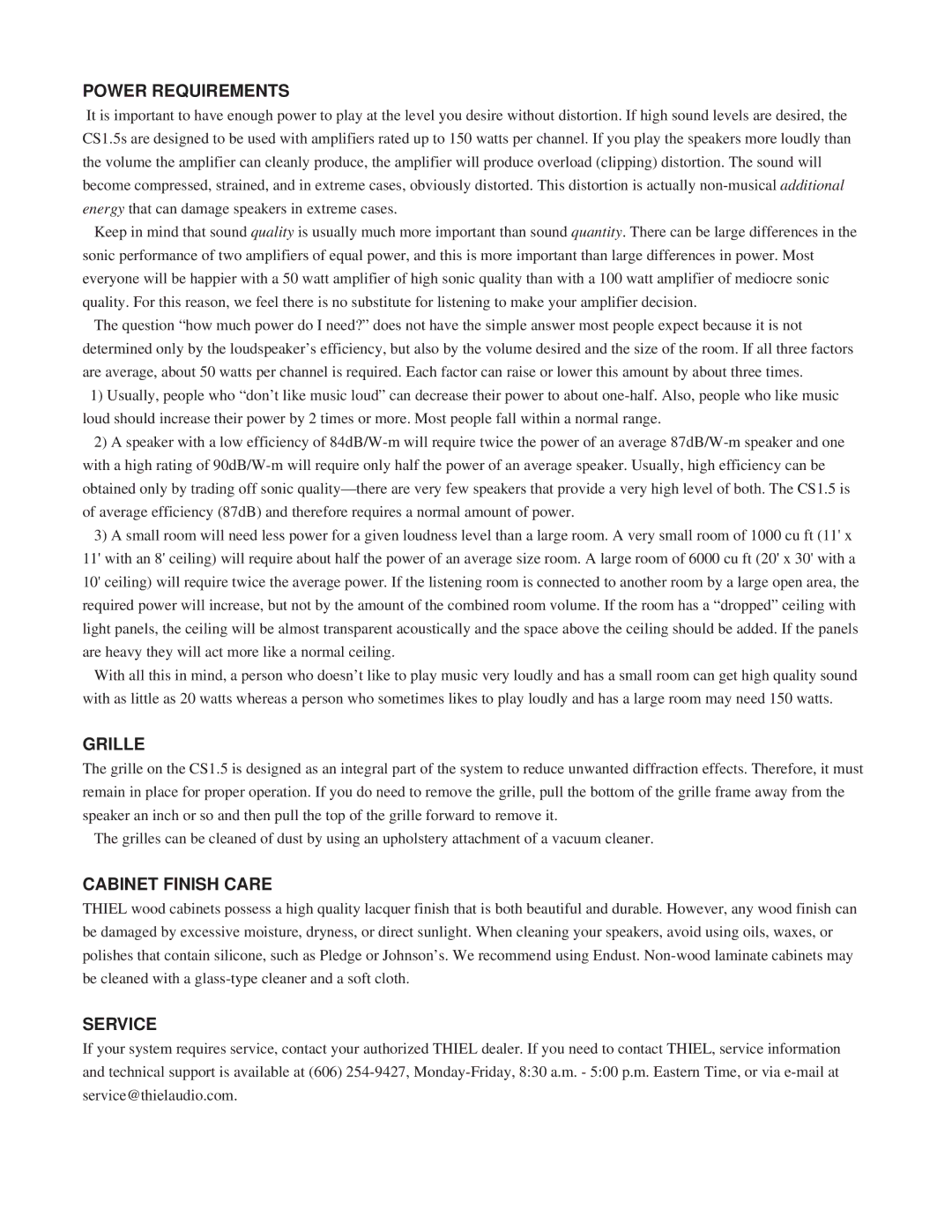POWER REQUIREMENTS
It is important to have enough power to play at the level you desire without distortion. If high sound levels are desired, the CS1.5s are designed to be used with amplifiers rated up to 150 watts per channel. If you play the speakers more loudly than the volume the amplifier can cleanly produce, the amplifier will produce overload (clipping) distortion. The sound will become compressed, strained, and in extreme cases, obviously distorted. This distortion is actually
Keep in mind that sound quality is usually much more important than sound quantity. There can be large differences in the sonic performance of two amplifiers of equal power, and this is more important than large differences in power. Most everyone will be happier with a 50 watt amplifier of high sonic quality than with a 100 watt amplifier of mediocre sonic quality. For this reason, we feel there is no substitute for listening to make your amplifier decision.
The question “how much power do I need?” does not have the simple answer most people expect because it is not determined only by the loudspeaker’s efficiency, but also by the volume desired and the size of the room. If all three factors are average, about 50 watts per channel is required. Each factor can raise or lower this amount by about three times.
1)Usually, people who “don’t like music loud” can decrease their power to about
2)A speaker with a low efficiency of
3)A small room will need less power for a given loudness level than a large room. A very small room of 1000 cu ft (11' x 11' with an 8' ceiling) will require about half the power of an average size room. A large room of 6000 cu ft (20' x 30' with a 10' ceiling) will require twice the average power. If the listening room is connected to another room by a large open area, the required power will increase, but not by the amount of the combined room volume. If the room has a “dropped” ceiling with light panels, the ceiling will be almost transparent acoustically and the space above the ceiling should be added. If the panels are heavy they will act more like a normal ceiling.
With all this in mind, a person who doesn’t like to play music very loudly and has a small room can get high quality sound with as little as 20 watts whereas a person who sometimes likes to play loudly and has a large room may need 150 watts.
GRILLE
The grille on the CS1.5 is designed as an integral part of the system to reduce unwanted diffraction effects. Therefore, it must remain in place for proper operation. If you do need to remove the grille, pull the bottom of the grille frame away from the speaker an inch or so and then pull the top of the grille forward to remove it.
The grilles can be cleaned of dust by using an upholstery attachment of a vacuum cleaner.
CABINET FINISH CARE
THIEL wood cabinets possess a high quality lacquer finish that is both beautiful and durable. However, any wood finish can be damaged by excessive moisture, dryness, or direct sunlight. When cleaning your speakers, avoid using oils, waxes, or polishes that contain silicone, such as Pledge or Johnson’s. We recommend using Endust.
SERVICE
If your system requires service, contact your authorized THIEL dealer. If you need to contact THIEL, service information and technical support is available at (606)
